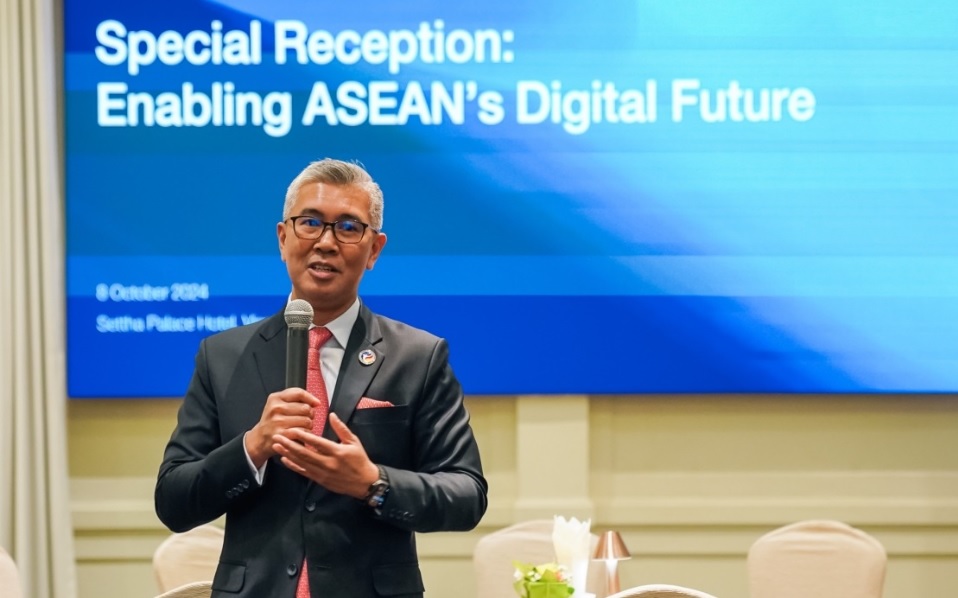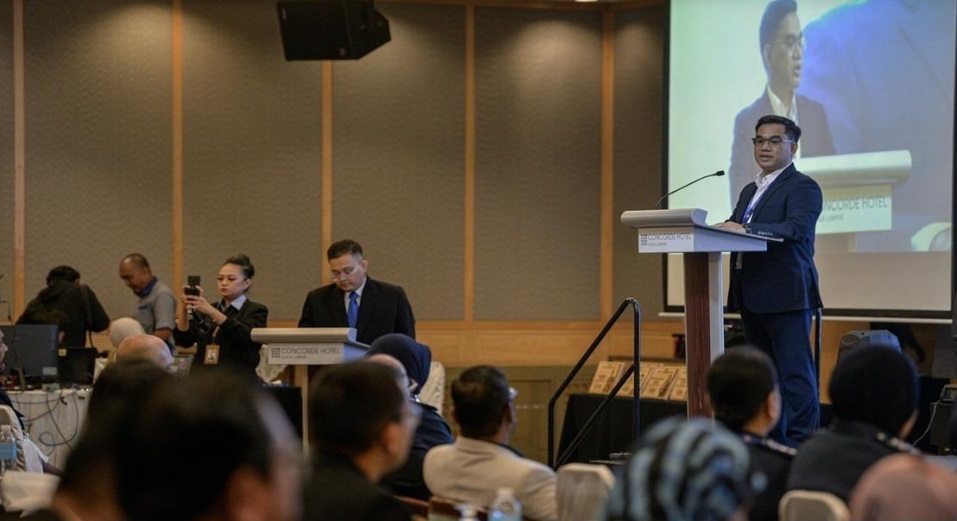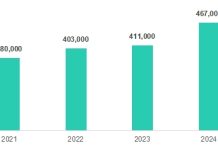
In recent years, ASEAN has been laying down the groundwork for digital transformation through the Bandar Seri Begawan Roadmap (BSBR) that aims to accelerate economic recovery and digital integration by 2025.
When coupled with the Digital Economy Framework Agreement (DEFA) negotiations that will conclude during Malaysia’s chairmanship in 2025, it is expected that micro, small and medium-sized enterprises (MSMEs) could stand to benefit from the US$2 trillion economic value generated from DEFA by 2030.
“A key milestone is the establishment of the DEFA, envisioned to harmonise regulations and create a more competitive regional trade ecosystem.
“This agreement is pivotal in transforming ASEAN into a digitally resilient and integrated region,” said Investment, Trade and Industry Minister Tengku Datuk Seri Zafrul Abdul Aziz, adding that closing the gap will be essential for a truly inclusive regional digital future and in tapping ASEAN’s digital economy which is projected to reach US$1 trillion by 2030.
However, in order to realise the digital future’s potential, Tengku Zafrul said that ASEAN must address both opportunities and challenges, particularly the digital divide among ASEAN member states. He gave the example of the Internet penetration rate in Singapore and Malaysia being over 90% while Myanmar and Laos’ rates are closer to 50-60%.
“The adoption of digital technologies has the potential to accelerate growth by as much as 8-10% annually across member states.
“To fully capitalise on this, we need cohesive and well-coordinated digital policies that attract right investments and foster innovation while ensuring equitable access to technology for all,” Tengku Zafrul said.
According to him, ASEAN is expected to become the 4th-largest economy, driven by a population of over 717 million, with a large proportion of digitally-savvy youth and growing digital adoption of over 400 million current Internet users in the region.
“This makes us an attractive market to gain foreign direct investments (FDIs), fostering entrepreneurship and technology transfer to accelerate economic growth,” he went on.
Malaysia, in particular, has been aggressively pushing to enhance digital trade, especially in terms of improving MSME participation and increasing the value in the supply chain that supports digital trade such as logistics.
Tengku Zafrul also noted that ASEAN has the fastest-growing Internet market with 125,000 new users daily, adding an estimated US$1 trillion to regional GDP over the next 15 years.
On another note, he said fostering a conducive environment for start-ups and MSMEs is key to unleashing ASEAN’s digital economy’s full potential.
“By empowering them with digital tools and access to capital, we can create a fertile ground for innovation, job creation and regional growth,” he opined.
However, increasing cybersecurity threats and data privacy issues are on the rise in the region, with the economic cost of cybercrime estimated to be over US$100 billion annually in ASEAN, underscoring the importance of robust data protection measures and the demand for more trusted digital systems.
Additionally, the rise of financial technology (fintech) and artificial intelligence (AI) presents both opportunities and challenges, such as the use of AI in credit scoring that raised concerns about algorithm bias and the possibility of unfair lending practices.
Due to this, Malaysia’s Association of Development Finance Institutions (ADFIM) chairman Izwan Zainuddin believes that clear governance frameworks are necessary to ensure responsible innovation in the digital age.

“Initiatives to leverage digital tools for greater transparency, such as the governance in glance system, are critical to navigate the evolving landscape,” Izwan noted, saying that strong governance enables trust and confidence in the financial sector as communities and investors demand transparency and accountability in all proposed projects and programmes.
“Recent market fluctuations, from volatility in the global technology sector to concerns about data privacy and cybersecurity have highlighted the critical need for sound risk management and ethical practices,” he added.
For Izwan, upholding these values are of utmost importance as financial institutions and entrepreneurs navigate increasingly complex regulatory landscapes following the introduction of the Malaysian Code on Corporate Governance issued by the Securities Commission (SC) in 2021.
“In addition to the mission corporate governance code, SC is also seeking public feedback on its draft governance code, especially for the MSME sectors.
“The next code – which will be launched very soon – will focus on clear accountability and the management of long-term risks tailored to the specific needs and challenges of MSMEs,” he added.














